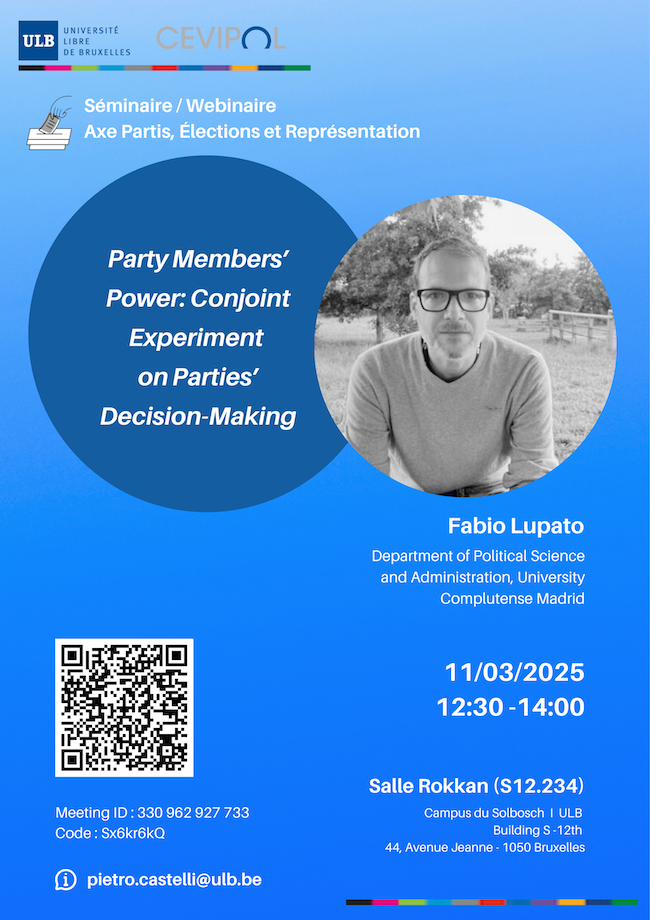-
Partager cette page
Party Members’ Power: Conjoint Experiment on Parties’ Decision-Making
Séminaire/webinaire de l'axe Partis, Élections et Représentation with Fabio Lupato (University Complutense Madrid).
Abstract
This article employs a conjoint experiment to systematically investigate the preferences of English political party members regarding internal decision-making processes. Addressing a gap in the party politics literature, the study explores members' attitudes toward procedural and organisational aspects of their influence within the party. In the context of a broader crisis of representation in Western democracies, the need for political parties to redefine their societal connections through enhanced intra-party democracy has become increasingly pressing.
The study examines the preferences of members from the two largest English parties, the Conservative and Labour parties, on key aspects of party decision-making, including leadership and candidate selection, policymaking processes, membership structures, and mechanisms for minority inclusion. The conjoint experiment presents respondents with hypothetical party profiles featuring randomly assigned attributes, allowing for a systematic assessment of trade-offs in intra-party governance. The sample comprises 1,200 members from both parties, ensuring a robust basis for analysis within the English majoritarian electoral system.
This comprehensive approach disentangles the relationship between existing party structures and members’ preferences, enabling comparative analysis across parties and membership categories. Notably, the findings challenge the differential preferences hypothesis, revealing a striking convergence in decision-making preferences among members of both parties.
The study thus provides novel empirical insights into party organisation and intra-party democracy, shedding light on members' choices and trade-offs concerning procedural reforms. These insights contribute to ongoing debates on strengthening political parties' representativeness, responsiveness, participation, and legitimacy in contemporary democracies.
BioFabio Lupato is Senior Lecturer in Politics at the Department of Political Science and Administration, University Complutense Madrid. His main research interest are political parties, intra-party democracy and digital democratic innovations in parties. He has recently published on these issuess in Information, Communication and Society, Policy Studies, South European Society and Politics and Parliamentary Affairs. He is member of the COST Action Project Regaining linkage? Digital technologies improving civic engagement, political organisations and democracy (RELINK²).

12h30 - 14h
ULB I Campus du Solbosch
Salle Rokkan S.12.234
Bâtiment S, 12è étage
44, Avenue Jeanne, 1050 Bruxelles

